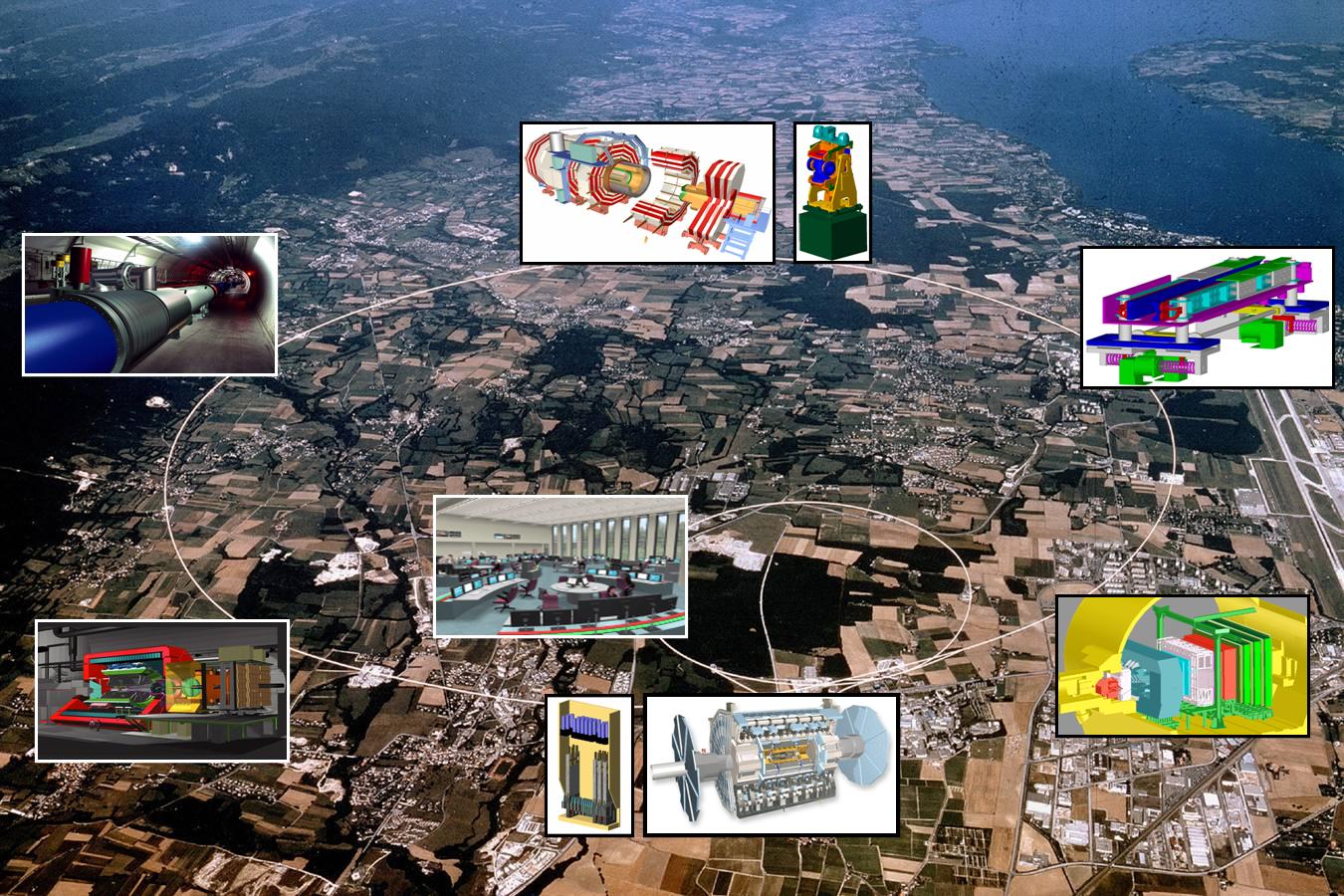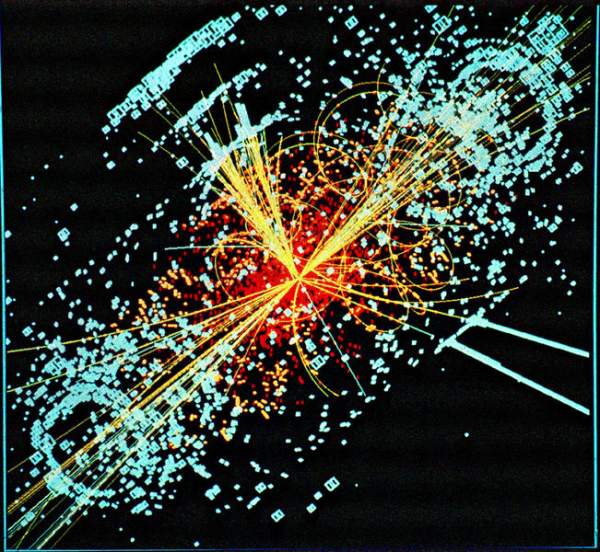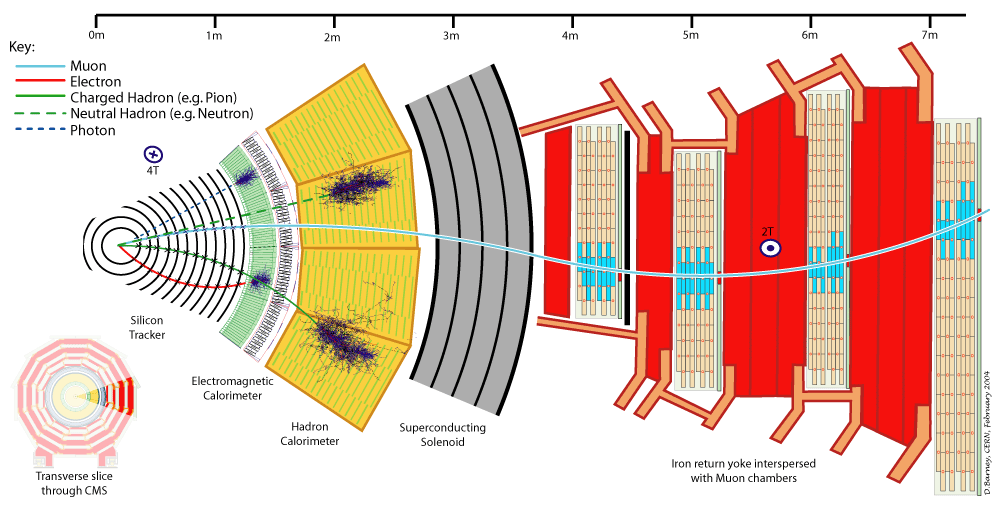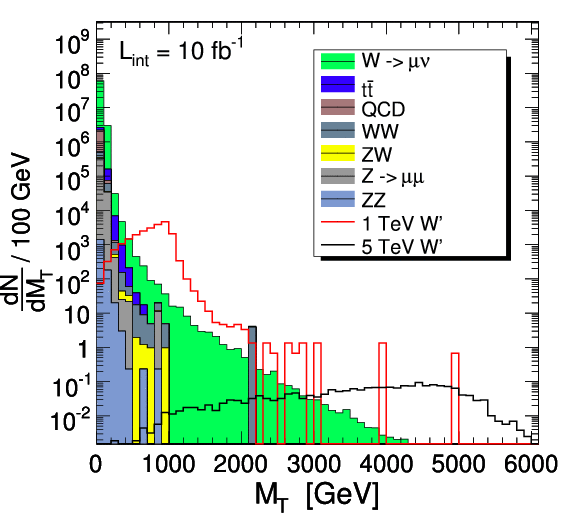Special Topics in Experimental
Physics
LHC Physics
GRS PY 898 B8 (Spring 2009)
Professor
Tulika Bose (tulika at bu.edu)
Physics Research Building (PRB) 369, 617-353-6027
Webpage: http://buphy.bu.edu/people/show/tulika
Time/Place Mon 2:00--4:30 PM PRB 261
Office Hours Wed,Thurs 2:00--3:30 PM PRB 369 (or by appointment)
Introduction
Course Description
Lectures
Syllabus/Class Schedule
Introduction:
Course Description:
Physics Research Building (PRB) 369, 617-353-6027
Webpage: http://buphy.bu.edu/people/show/tulika
Time/Place Mon 2:00--4:30 PM PRB 261
Office Hours Wed,Thurs 2:00--3:30 PM PRB 369 (or by appointment)
Introduction:
The much anticipated
collisions at the Large Hadron Collider (LHC) this summer will
herald a new era in elementary particle physics. Its unexplored energy
domain will provide unique opportunities to search for new physics at
the TeV scale. This is particularly interesting since such an energy
regime is preferred by many theoretical models that strive to resolve
some of the known problems associated with the Standard Model of
particle physics.
Course Description:
This course will
start with an overview of the LHC and the four experiments (ATLAS, CMS,
LHCb and ALICE) that will record particle collisions from proton-proton
interactions at 14 TeV. Thereafter, different experimental
techniques/methods critical for physics analyses at the LHC will be
discussed: Trigger and data-acquisition, lepton identification,
measurement of jets, tracking, Monte Carlo techniques, statistical
methods, etc.
The latter part of the course will consist of a series of discussion seminars. The exact number of seminars will be adapted to the actual number of participants. Students will review selected seminars beforehand and present a summary in class along with items for further discussion/explanation. These seminars will cover major physics topics that will be studied at the LHC.
With collisions expected later this summer, a brief review of the latest commissioning activities at CERN will be presented during the duration of the course.
This course is suitable for all those who are interested in LHC physics and in particular graduate students that are keen on experimental high energy physics. The course should also be of use to theory/phenomenology graduate students who can learn about the LHC, the detectors, and experimental techniques and methods.
Lectures:
Seminars:
Syllabus/Class Schedule:
The latter part of the course will consist of a series of discussion seminars. The exact number of seminars will be adapted to the actual number of participants. Students will review selected seminars beforehand and present a summary in class along with items for further discussion/explanation. These seminars will cover major physics topics that will be studied at the LHC.
With collisions expected later this summer, a brief review of the latest commissioning activities at CERN will be presented during the duration of the course.
This course is suitable for all those who are interested in LHC physics and in particular graduate students that are keen on experimental high energy physics. The course should also be of use to theory/phenomenology graduate students who can learn about the LHC, the detectors, and experimental techniques and methods.
Lectures:
- Lecture 1: CERN/LHC
- Lecture 2: LHC Experiments
- Lecture 3: Trigger & DAQ - Part I
- Lecture 4: Trigger & DAQ - Part II
- Lecture 5: Trigger Menus & Detector Commissioning
- Lecture 6: Lepton Identification
- Lecture 7: Taus and Jets
- Lecture 8: Advanced Analysis Techniques
Seminars:
- Seminar 1: Searching for the Higgs at the LHC (Phil Lawson)
- Seminar 2: SUSY at the LHC (Adam Avakian)
- Seminar 3: Exotica at the LHC - I (Cory Fantasia)
- Seminar 4: Exotica at the LHC -II (David Schaich)
- Seminar 5: Electroweak Physics at the LHC (Keith Otis)
- Seminar 6: QCD Physics at the LHC (John Roush)
Syllabus/Class Schedule:



